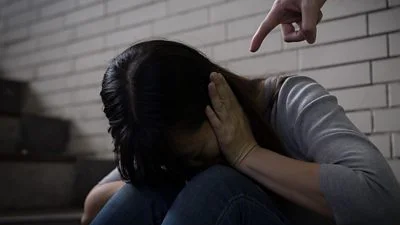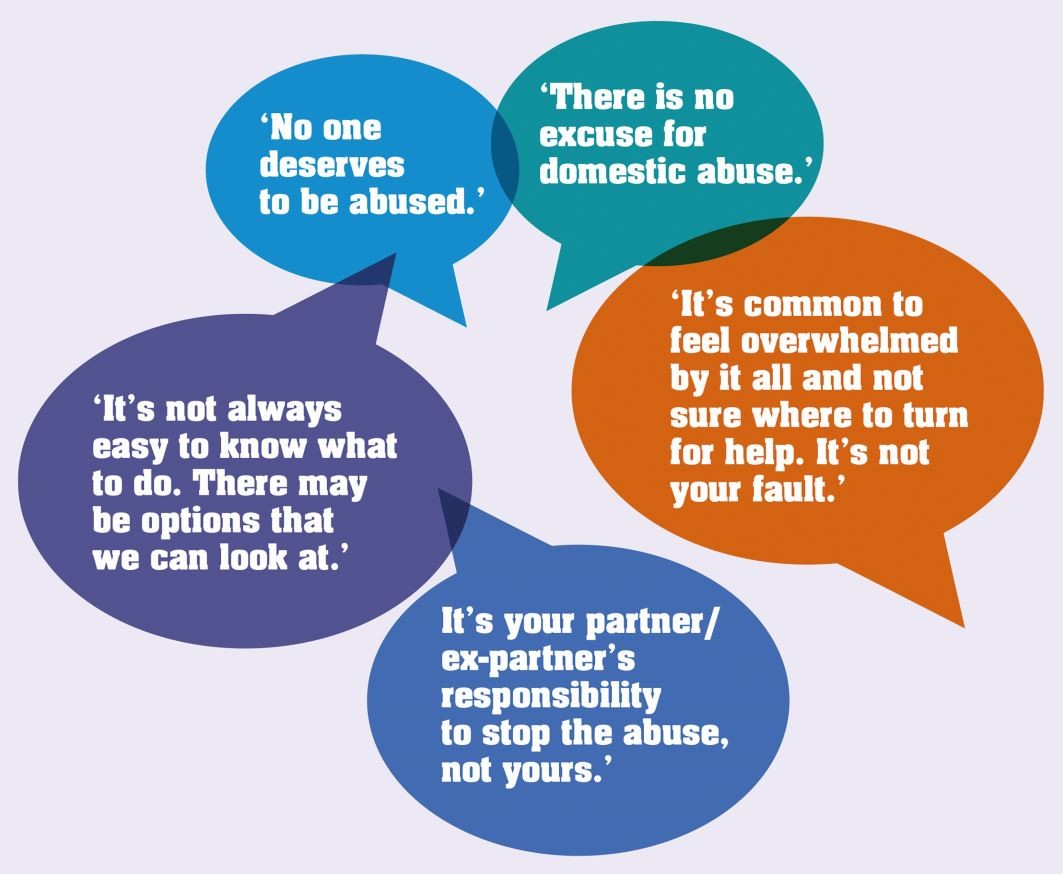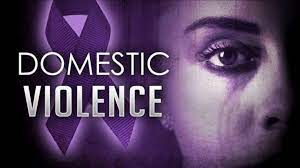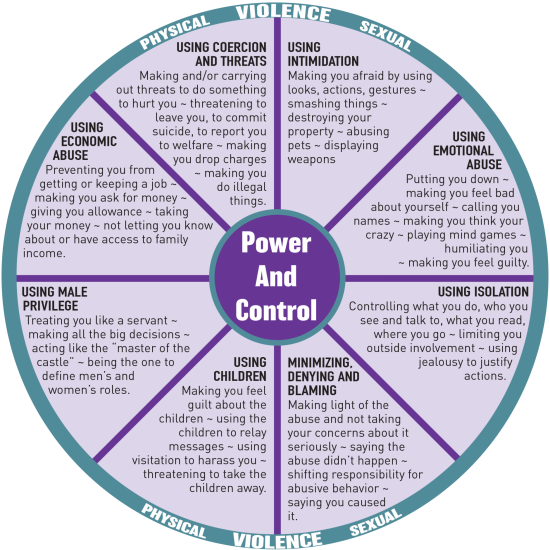How you might be facing domestic violence but not realising it + Awareness about laws related to domestic violence
6 minuteRead

Identifying an abusive relationship is not easy. It takes courage and a lot of time to come to terms with it. Also known as intimate partner abuse, domestic abuse is not just physical violence.
According to many therapists and psychologists, limiting Domestic abuse to just physical violence is a very dangerous myth and a narrow-minded belief that harms individuals and society. Many people don't realise that harassment, stalking, financial abuse, sexual abuse, emotional abuse, and psychological abuse, all fall under the umbrella term of domestic violence.
Often signs of Domestic abuse are not very apparent. Especially the early signs that you might be in an abusive relationship are harder to see.
Recognise the Patterns of Domestic Abuse-
At times you might wonder if you imagine it, or maybe the abuse is just in your head, but the emotional or physical pain that you might be experiencing is real, and thus it becomes important to recognise the Patterns and get yourself out-
- Name-calling or insulting
If your partner has been calling you names, insulting or abusing you verbally, then it could be a sign of domestic abuse.
Warning signs include using slurs for fun, setting unrealistic expectations and then scolding you for not meeting those, insulting your work or passion, or being insensitive towards your pain.
- Extra possessive in the name of love.
Extreme jealousy and possessiveness is also a sign of domestic abuse. Even if they try to justify it in the name of love or care, possessiveness and jealousy are never part of a healthy relationship.
The signs, in this case, includes the partner constantly accusing you of cheating. They may go through your phone and messages. Follow you around or cross-check everything you say with your friends. All these cases are warning signs of an abusive person.
- "Playful" use of force during sexual activity
A balance of power is important in any relationship. If you feel that you might be getting pressured into doing things during sexual intercourse, then it might be a sign of domestic abuse.
Warning signs include manipulating or sulking to make you agree. Making degrading jokes without your consent or just forcing you into having sex when you don't want to.
Source: springnature
- Abuse in same-sex relationships.
If you're in a homosexual relationship, the warning signs of abuse may differ a bit. People in same-sex relationships often feel they don't deserve to seek help or maybe feel alienated from society.
Warning signs include threatening you into telling friends, family or colleagues against your will and not respecting your identity or sexual orientation and creating fear by telling you that no one will listen or believe you.
- Violent behaviour-
Violent behaviour like hurting you, your children or even your pets. You may feel their mood shift instantly, and you often get blamed for it.
Warning signs include breaking furniture, glass, or anything, throwing objects in anger, shoving, pushing or forcefully restraining you. Often it is noticed that abusers call their previous partner crazy or psycho for walking out. Signs may also include disrespecting most people and hurting animals or children for no reason. Signs also include taking out anger on people below financial status like the waiter, house help etc.
Break the cycle-
In many cases, the abusive person often apologises. They might shower you with gifts and promises for the future, but the same incident will happen again after some time.
If you have found yourself if such a scenario, then it's important to understand and break the cycle.
Here's a pattern you might recognise if you're in an abusive relationship-
Your abuser will threaten or fear you into submission.
Your abuser will strike over something, physically or emotionally.
Your abuser will come back, apologise and promise not to do that again.
The cycle repeats itself.
If you find yourself resonating with this, then you need to inspect the larger signs and seek help if necessary.
Don't take the blame-
Taking the blame is often noticed in many survivors of domestic abuse. You might feel your suffering is self-induced, or you don't deserve to seek help. Reasons may include-
- Your partner could make you feel that your own actions initiated them into behaving like that.
- They might argue that they are not like that in public, but only with you, so it is your fault.
- If you believe you have also acted verbally or physically, it may be more in self-defence than abuse.
- Your partner is charming and kind to all friends and family, so how can they be an abuser?
People in domestic abuse often question these points, arguing that maybe it's not abuse. In such cases, it's important to remember not to take the blame. If someone's getting treated is wrong, it's not your fault.
Questions to ask yourself-
If you are unsure about the nature of your relationship, then here are some questions that might help you get some clarity-
- Does your partner constantly put you down or insult you alone or in front of friends and family?
- Does your partner monitor your daily activities and follow you around most of the time?
- Do they check your phone and messages against your will?
- Is your partner jealous or possessive?
- Do they control what you wear or what you spend?
- Do you feel that your partner is sweet one second and scary another?
- Does your partner get angry and scream/shout at you over little things?
Laws Related to Domestic Abuse
If you feel ready to walk out, many laws and services can help you.
Charges against Domestic abuse can be filled on the basis of-
- Physical abuse
- Sexual abuse
- Emotional abuse
- Economic/financial abuse
- Technological abuse
Source: domesticviolence
Laws Related to Domestic abuse-
There are many laws made to help the survivors of domestic abuse.
- Laws under section 304B of the Indian Penal Code are related to dowry death.
- IPC Section 313-316 can help in cases of forced abortion and female infanticide.
- Under PC section 349, holding confinement or forceful restraint is a punishable offence.
- Section 498A of IPC can be filed against cruelty, which falls under the domestic violence category.
Often women stay in abusive relationships due to fear of safety and the future. But there are many laws that can help you seek proper help. Here are some laws related to domestic abuse:
Domestic Violence Laws-
Protection of Women against Domestic Violence Act, 2005
This Act covers a wide range of offences, including physical abuse, sexual abuse, and emotional and financial abuse as well. This Act covers not only married but women in live-in relationships. You can seek security, financial compensation and the right to live in the house.
Dowry Prohibition Act, 1961
The Dowry Prohibition Act is helpful if the husband or in-laws are demanding a dowry.
Maintenance Laws
Maintenance Laws include sector 125 of the Criminal Procedure Code, 1973. Section 24 of Hindi Marriage Act, 1955. section 18 of the Hindu Adoption and Maintenance Act, 1956.
Source: carefl
Write, Record and Answer! Consume Unlimited Content! All you need to do is sign in and its absolutely free!
Continue with one click!!By signing up, you agree to our Terms and Conditions and Privacy Policy.













